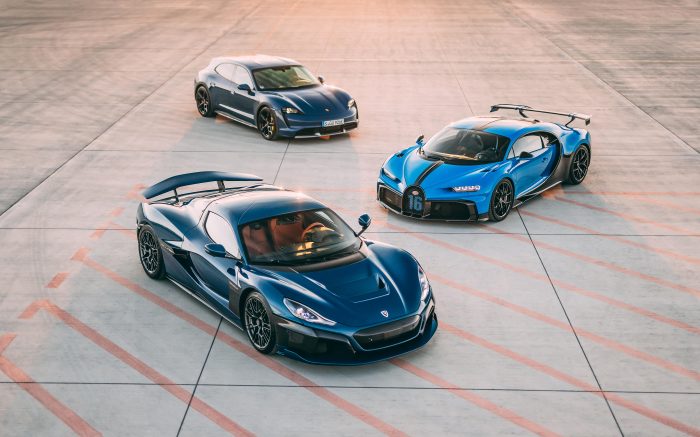Bugatti has joined the race towards a cleaner future following its takeover by electric hypercar manufacturer, Rimac. The latter has announced that this coalition has birthed a new company called Bugatti Rimac.
As a result, the original Rimac Automobili company has now evolved into a group with two companies: the newly formed Bugatti Rimac and Rimac Technology. The second will be responsible for the continued development and production of Rimac’s world-leading electric battery systems, which has been seen in the likes of Aston Martin and Jaguar, and yes, Bugatti.

Up until now, Bugatti – a prominent name in the luxury auto industry – has been focused on combustion vehicles. This new partnership has clearly changed the company’s focus, and may even lead to the production of the world’s fastest electric hypercar – a title that Rimac’s Nevera model is gearing to take away from the Bugatti Chiron.
Thirty-two-year-old Mate Rimac, who initially founded the eponymous brand in his garage in Croatia a mere 12 years ago, will remain as the group CEO and will run both companies. Commenting on the announcement, he said: “This is a truly exciting moment in the short, yet rapidly expanding history of Rimac Automobili. We have gone through so much in such a short space of time, but this new venture takes things to a completely new level.”
The Croatian company will own a controlling 55 per cent stake in Bugatti, while VW’s Porsche brand will hold the remaining shares. Volkswagen has owned Bugatti since 1998 when it bought the sports car brand for $50 million. This was an all-stock deal, meaning no money changed hands, according to Porsche boss Oliver Blume.

“Bugatti and Rimac will both continue as separate respective brands, retaining existing production facilities and distribution channels,” Rimac says. “Bugatti Rimac represents the company that will develop the future of both [brands] by joining resources and expertise in research and development, production, and other areas.”
Both companies will retain their respective headquarters, but Rimac plans to eventually move to its planned $200m+ campus in Croatia, which is set to open in 2023.
Source: Elite Traveler
